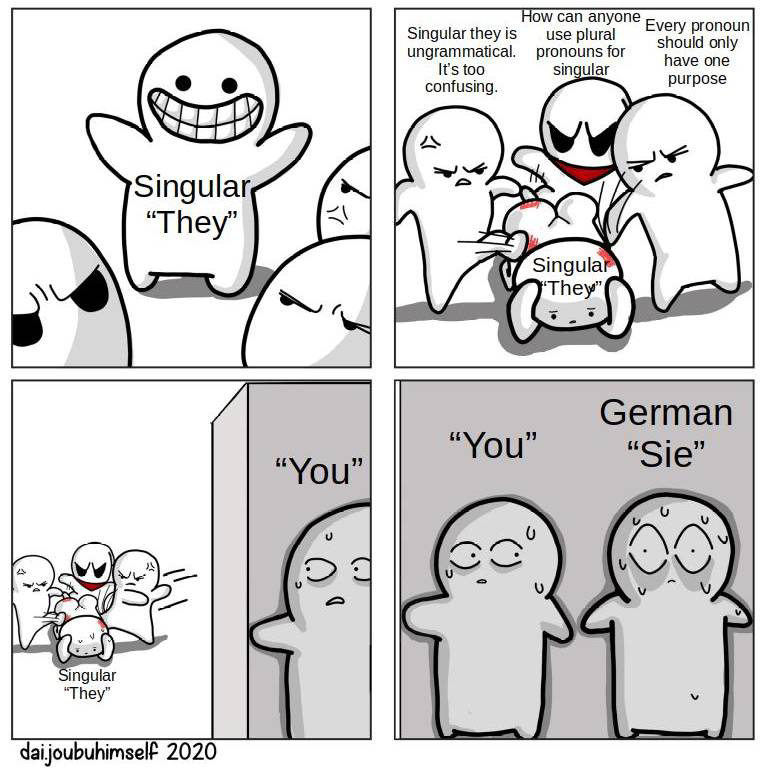this post was submitted on 24 Jul 2023
602 points (97.6% liked)
196
16898 readers
1810 users here now
Be sure to follow the rule before you head out.
Rule: You must post before you leave.
If you have any questions, feel free to contact us on our matrix channel.
founded 2 years ago
MODERATORS
you are viewing a single comment's thread
view the rest of the comments
view the rest of the comments

In a nutshell, it's like English's they (plural animate or inanimate), it (for feminine objects, remember that german is a gendered language like french) she, and you (both singular and plural) combined.
Though, Sie meaning "you" is the polite version, used to address someone politely. For informal situations, there's the impolite and always-singular "Du"
While there are different conjugations and capitalization between the different uses of Sie, in the end they all use the same word.
It’s not about politeness.
If you’re on first name terms, it’s extremely rude to switch back to the formal address. Like, „FYI whatever our relationship was, I just burned that“ rude.
And more and more, people who don’t know each other immediately skip the formal part. I personally find „Sie“ rude, and I’m using it only for people I don’t like.
So it's not about politeness, it's about not being rude?
Edit: rewrote everything because it’s actually easier than I was explaining it:
It’s not about being polite or rude, it’s an indicator of your relationship with the person/s you’re addressing.
It’s not like you can choose how you say something to set a certain tone. „Would you pass me the butter, please“ doesn’t get more polite using „Sie“.
Who you’re talking to defines what to use.
When you are introduced, it’s easy: „Hey Bob“ -> informal -> „Du“; „Hello Mrs. Robinson“ -> formal -> „Sie“. Mixing them up just doesn’t happen, except for very small children who sometimes use the informal „Du“ with „Mrs Krabappel“.
It only gets complicated because it also is used when you do not know each other, like on the street, at a restaurant, etc.
Then it’s a judgment call what to use depending on the context. Either there’s some social clue (age, location, class, etc.), or whoever goes first sets the tone, but it’s still pretty much along the lines of „would I call her Kathryn or Cpt. Janeway“.